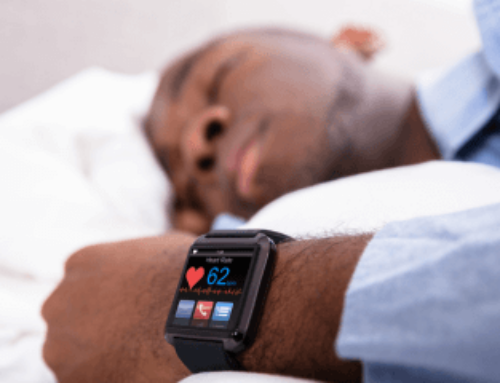On Wednesday, May 13, ResMed released a field safety notice that likely affects many of your patients currently being treated for central sleep apnea syndrome with adaptive servo-ventilation (ASV). In particular, if you have a patient with symptomatic, chronic heart failure (NYHA 2-4) and with a reduced left ventricular ejection fraction (LVEF ≤ 45%), using ASV to treat their moderate to severe central sleep apnea syndrome may be harmful. Based upon the early results of the randomized controlled SERVE-HF study, for this particular at risk population, there is a 33.5% increased risk of cardiovascular death, compared to control patients who are not on ASV therapy (absolute annual risk: 10% in ASV patients vs. 7.5% in control group).
Importance of the Ejection Fraction: All patients in the trial had an LVEF ≤ 45%. The SERVE-HF study randomized patients with symptomatic heart failure, who had to have an LVEF ≤ 45%, and who had moderate-to severe central sleep apnea syndrome (AHI>15, >50% of events central in nature, and CAI at least 10) to two care arms: best medical care alone, vs. best medical care plus ASV titrated to minimize the AHI. A post-hoc analysis seems to show worse ASV-associated risk as LVEF declines further below 45%. The trial results do not directly address patients with preserved ejection fractions.
Importance of the Diagnosis: All patients in the SERVE-HF study had central sleep apnea associated with heart failure. These results do not inform us about the effects of ASV on patients with other forms of central sleep apnea syndrome, such as that due to opiates, other medical problems, treatment emergent central sleep apnea, or primary central sleep apnea.
What should you do?
Only you and your patient can determine the best course of action. However, based upon the available information at this time, the following is recommended:
-
- Stop prescribing ASV to treat central sleep apnea in patients with symptomatic heart failure and LVEF<45%. Until more is known, this evidence suggests such treatment may be harmful for such patients.
-
- Before starting a patient on ASV, each patient should be assessed for the presence of heart failure. If heart failure symptoms are present, an objective assessment of LVEF is indicated to see if they are in the higher risk group.
- Contact prior patients with symptomatic heart failure whom you have treated with ASV since 2005 and advise them of the risks. You should strongly consider recommending that they stop ASV treatment. Which alternative treatments for central sleep apnea to recommend, if any, will need to be individualized. The control arm of the SERVE-HF study was best medical management without management of concurrent central sleep apnea. Representatives at ResMed have indicated that in their preliminary assessment of the data, there was not quality of life benefit to therapy with ASV. Together, these indicate that at the very least, patients should ensure they are receiving best evidence-based care for their heart failure. Other evidence-based therapies to consider for CSA might include CPAP or oxygen, but long-term outcome studies for these therapies are not conclusive either.
Identifying prior patients with heart failure whom you have treated with ASV may take some effort:
-
- You may be able to use your administrative/billing database, searching for your patients with central sleep apneas (ICD-9 327.27 or 786.04) and heart failure (ICD-9 428), and perhaps for whom you also have performed polysomnography with PAP titration (CPT 95811) – which was likely performed in order to begin ASV treatment.
-
- You may have a clinical database of patients fitting the criteria.
-
- You may be able to search prior prescriptions (if electronic) for PAP and determine which patients were prescribed ASV.
- You may be able to contact DME companies you work with, which can tell you who is using ASV.
Each practice will need to determine which methods will work best to identify the patients who need to be notified.
- You should alert your office staff that there may be calls related to this issue. Help them determine the best way to manage these calls and prepare for follow-up appointments during which patients may discuss next steps with you.
ResMed has set up an FAQ website that may have helpful information available. In addition, they have tried to ensure that all physicians who have written prescriptions for ResMed ASV devices have received a safety notification. Furthermore, they have requested that DME providers notify prescribers of the safety concerns. We applaud their straightforward steps taken to safeguard patient safety. However, it will be up to physicians to engage their patients in the discussion regarding what to do about ASV therapy.
In order to serve our members better, the AASM will be arranging for a special session at the upcoming SLEEP 2015 annual meeting to update members regarding the SERVE-HF results and to discuss recommended actions. Look for further notifications to come.
Read the news release: ResMed Provides Update on Phase IV SERVE-HF Study of Adaptive Servo-Ventilation (ASV) Therapy In Central Sleep Apnea and Chronic Heart Failure.
Visit the ResMed SERVE-HF FAQs webpage.
Learn more about the “Rationale and design of the SERVE-HF study.”




